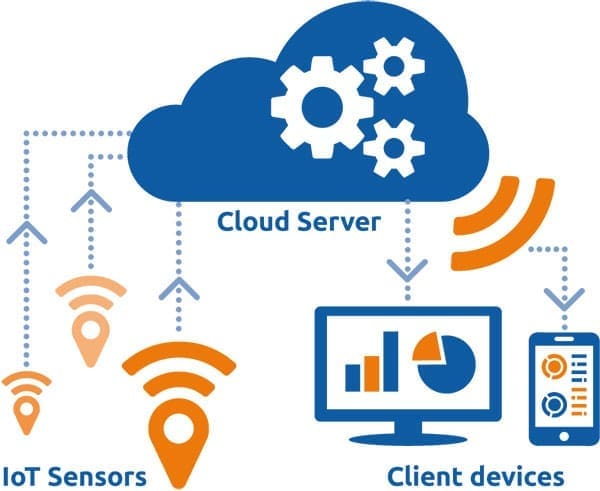
Public Cloud Solutions in Cloud Infrastructure
Leverage the Public Cloud for Scalable, Cost-Effective IT Infrastructure. Public cloud computing offers a transformative approach to IT infrastructure, and we can guide you in maximising its benefits.
Your London Telecoms and IT partner

You may have heard about what’s called the ‘cloud threat’ and how companies can increase their chances of securing a business contract by taking part in a cloud bout. However, did you know that clouds are connected to the Internet? In other words, do you know how clouds affect the network? If you’ve answered ‘yes’ to all those questions above, then we at Portman Tech congratulate you on your knowledge!
Stop infrastructure limitations from hindering your ambitions. Our cloud solutions offer limitless scalability, allowing you to focus on innovation and scale your applications effortlessly to meet growing demands.
You are one of the lucky ones who can take part in this miracle experiment and see if your company is connected to the Internet through its own data centre’s or whether it is being served via analog transmission lines which means it has no connection to the Internet at all. The answer will determine how much control your company has over its connection to the internet and whether it will be subject to an open signal or closed signal test.
Read on for more information about what a cloud connection is and why you would want one on top of every platform your company operates from.

A cloud connection is the inter-cloud communications that take place between your data centre and the cloud. It is the exchange of data and information among the two entities, where the data centre functions as a host to the cloud and the cloud functions as a data source. The connection between the data centre and the cloud takes place via a cloud data channel, which is also known as an application programming interface (API).
A cloud connection is a data channel between your organization and the cloud. The two parties of this communication are called a client and server (or service).
A cloud data channel allows you to move data between the client and the server. This is done by allowing you to send messages back and forth through channels that are connected to each other through an API. This allows different programs on both ends of the connection (e.g., an application) to communicate with each other without requiring any additional software or hardware for them to function properly together as part of one large system.
The connection between your organization’s servers, storage systems, databases and other infrastructure components to external resources such as third-party clouds or external enterprise resource planning (ERP) systems can be achieved through various means including:
The cloud data channel is a programmatic interface that allows the two systems to communicate with each other. The exchange of data and information between your data centre and the cloud occurs through this channel. The channel can be either open or private, depending on whether you want it to be accessible or not by external parties.
It is important for organizations to understand how these channels work as well as having a good understanding of their own needs before deploying any type of infrastructure in this area because without proper planning it may not provide adequate performance levels.
A cloud connection does not just connect your data to the cloud. It also affects the timing, amount, and type of data that is being exchanged on the underlying networks. This can have a significant impact on the quality of the service your customers receive from the cloud.
The physical network is the network connected to the physical machine(s) where the data is stored and processed. It is used for transmitting data between the machine(s) and the internet.
A virtual network is a network that is created without any physical connection to the internet. It is an alternative to the physical network.
In order to get the best performance out of a cloud-based network, you need to run it as if it was directly connected to the internet. This means that DNS should be run on a cloud instance, you should use private networking on any instances that do not need external access, and firewalls should be configured to prevent any unnecessary traffic from traversing the physical network.
The challenges faced in connecting the machine to the internet could be due to the wireless provider and not to the machine itself. Virtual networks reside on top of physical networks, so the network connection does not depend on a physical network. Therefore, you are connected to the internet even if your machine is connected via a wireless LAN or Wi-Fi network (provided that you have an internet connection).
Cloud data centre’s are expected to perform several crucial functions in a business’s day-to-day operations:
– As a data centre provides a marketplace for products and services, it is an important part of a company’s balance sheet to have access to it.
– Data communication occurring over the internet transforms physical networks into virtual networks and vice versa.
– Data communication occurs between data centre’s, and the customers are the customers in the end-user’s eyes.
Cloud data centre’s are a great example of the intersection of technology and business happening all over the world today. By choosing to go in this direction, businesses have ensured that they have access to all of their assets, no matter their location. The cloud essentially eliminated the traditional walled garden approach, as every company has access to its own private space, as well as shared private networks and public ones.
If so, great – because those are exactly the kind of answers, you’ll get by reading this article!
It is impossible to deny the increasingly important role that data centre’s play in our lives. They are and will remain a cornerstone of how we live our lives for many years to come, as new ways of leveraging their massive computing power are being implemented all the time.
Cloud computing has become an important part of the internet and businesses today in London and every other part of the world. As new business opportunities continue to develop, there is little doubt that cloud computing will be a vital component in facilitating these connections.
Struggling with outdated hardware, rising IT costs, and limited scalability? Our secure cloud infrastructure services free you from hardware headaches, reduce costs, and provide on-demand resources to fuel your growth.
Clouds play a significant role in the online world, serving as a high-level platform from which businesses can obtain a wealth of information. The connection between a data centre and the cloud can affect the quality of services provided, with the potential for closed systems being particularly susceptible to these effects.
The article has provided a basic overview of how clouds affect the internet and how you can protect yourself and your business. You will also learn about the benefits of using clouds in your business and how they can help your business grow and secure its future.
ABOUT THE AUTHOR

Vikas Shah joined Portman Tech as Chief Technology Officer in 2018. IT has always been his passion and he has built his career around technology. Vikas closely follows developments in technology, providing clients with solutions that fit their requirements.

Leverage the Public Cloud for Scalable, Cost-Effective IT Infrastructure. Public cloud computing offers a transformative approach to IT infrastructure, and we can guide you in maximising its benefits.

3 Keys to Security & Growth in the Cloud Say goodbye to clunky hardware and hello to world-class security, effortless scalability, and boosted collaboration. Discover the 3 game-changing advantages of moving your business to the cloud.

0800 862 0120
hello@portmantech.com
123 Aldersgate Street, London EC1A 4JQ